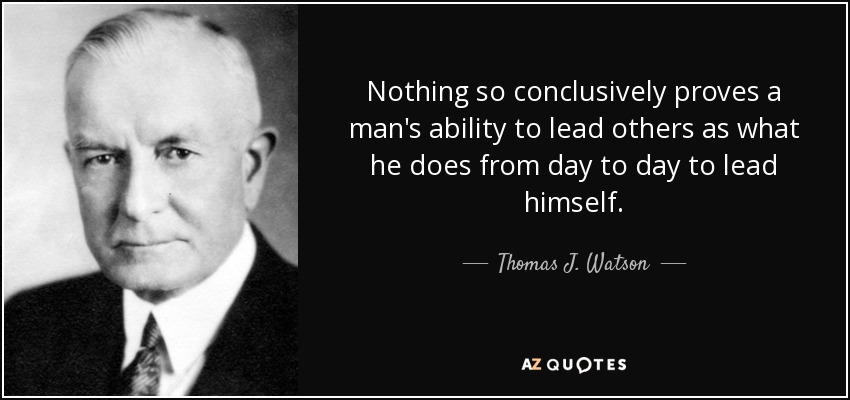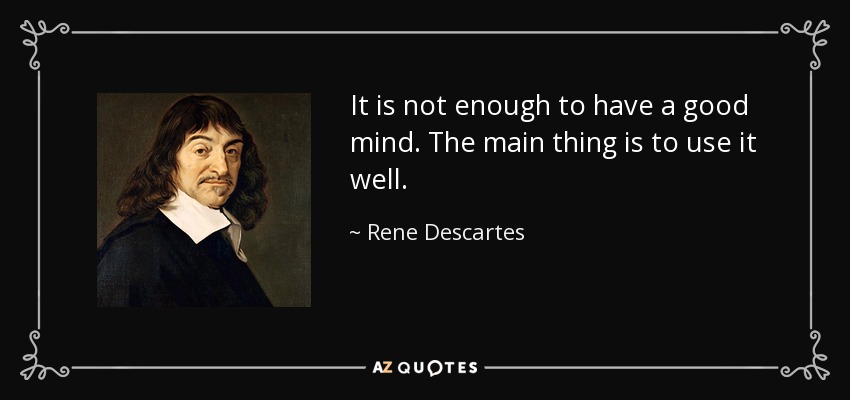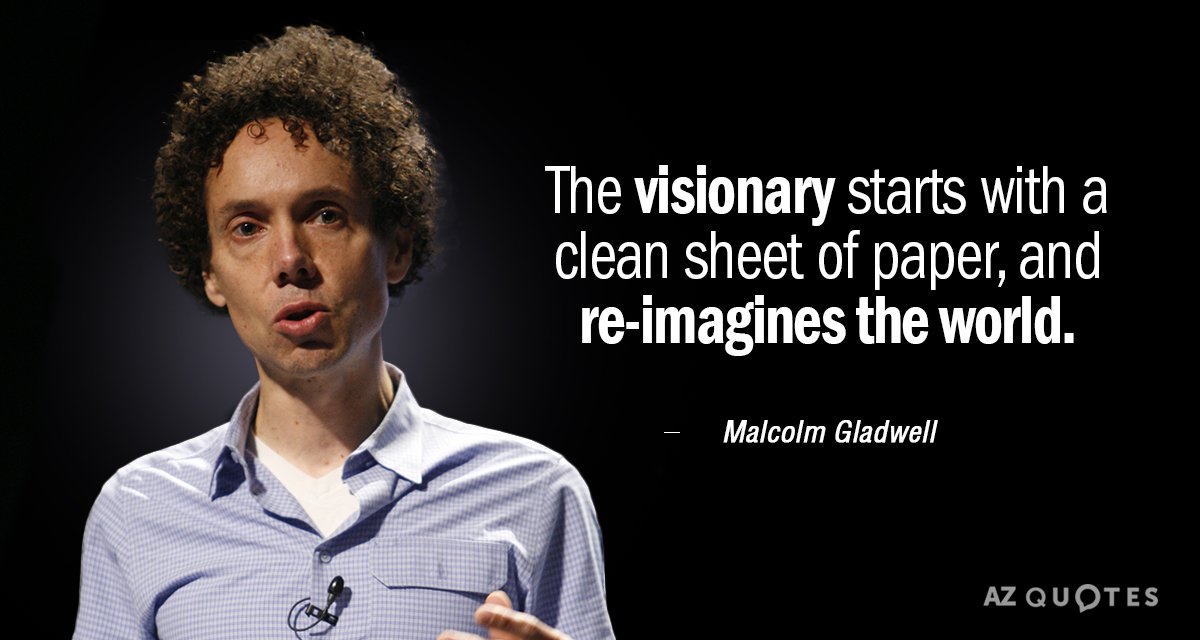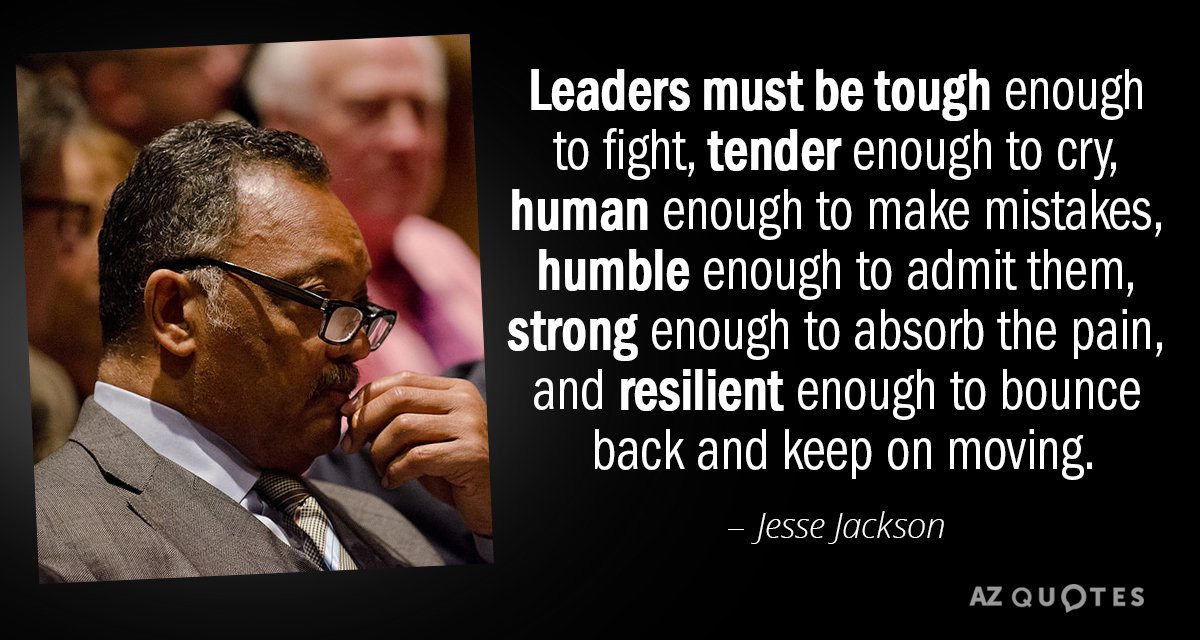Click here to return to Blog Post Intro

The DNA of Extraordinary
Mark Sanborn wrote, “I define leadership as an invitation to greatness that we extend to others.”
In Mark chapter 12, Jesus was challenged, “Which commandment is the most important of all?” (v. 28). Jesus responded with a fundamental biblical truth known as the Great Commandment: “Love the Lord your God with all your heart and with all your soul and with all your mind and with all your strength” (v. 30). Then he proceeded to give those questioning him the second-greatest commandment: “Love your neighbor as yourself” (v. 31).
Love God. Love others. The Great Commandment has enormous implications for us as leaders. This is where extraordinary is found. Within the Great Commandment is the model for extraordinary leadership.
We can’t lead without our heart. We can’t lead without our soul. We can’t lead without our mind. We can’t lead without our strength. We are integrated, messy, complicated humans, and when we learn that leading from all four of these dimensions is essential, we free ourselves to lead more fully.
The 4 Dimensions of Extraordinary Leadership:
- Heart (Relational Leadership): Your heart is the center of your emotions, desires, and wishes. Your heart is what most connects you with others. Love God. Love others.
- Soul (Spiritual Leadership): The distinction that sets you apart as a faith-based leader.
- Mind (Managerial Leadership): Mind enables us to strategize and to make plans. It is where we find clarity and where God imparts wisdom. The mind could also be viewed as the managerial component of leadership.
- Strength (Visionary Leadership): Visionary leadership means keeping hope and possibility in front of yourself and those you lead. It’s recognizing that your job as a leader is chief vision caster every day.
From Ordinary to Extraordinary
Imagine Extraordinary
We all have influence with others, but that doesn’t necessarily make you a great leader. Leadership begins with influence. But leadership isn’t simply influence.
Great leadership is an action; it’s a lifestyle. A lifestyle of leading from our whole selves—heart, soul, mind, and strength.
In an article titled “What Is Leadership?,” Forbes contributor Kevin Kruse wrestles with some of the popular definitions of leadership and he provides his own: “Leadership is a process of social influence, which maximizes the efforts of others, towards the achievement of a goal.”
Extraordinary leadership is found in a leader who has searched to discover his or her authentic self and from that place influences others to accomplish great dreams through intentional relationships (heart), spiritual awareness (soul), wise counsel (mind), and relentless vision (strength).
Jesus modeled the responsibility of leadership in the way he engaged with his disciples in everyday life. From washing their feet in an act of humility and service, to directing them to feed the thousands, to sharing quiet times of prayer and reflection, to painting the picture of their responsibility once he was gone, Jesus loved and led his disciples with the purpose of helping them grow and develop. It wasn’t about him; it was about them.
Leading in Chaos
Brad Lomenick said, “Leaders live and lead in the middle of the mess. Where the tension is constant, prevalent, and real.”Top of Form
Leadership is messy, murky, complicated, and rarely black-and-white. Leadership is all about people, and people are complex.
Leaders live in a constant state of tension—between what is and what could be. We straddle the known and the unknown. We wrestle the probable with the possible. We balance status quo with innovation. We have to understand where we are yet convince our teams to keep going.
Leadership expert John Maxwell expresses it this way, “As a leader, your responsibility is to understand momentum, to get it moving for your organization, and to sustain it over time.”
Nehemiah gives us a great model—with a wall that lay in ruins, and those ruins symbolized a lack of hope, a lack of strength, and a lack of direction for God’s people. He was burdened. Nehemiah owned it. It was personal.
- He Sought Out Support (Heart): Nehemiah knew he couldn’t do this alone. He needed others to help him accomplish the vision of restoring the wall.
- He Prayed over It (Soul): Nehemiah displayed spiritual leadership by praying for God to give him direction for how to proceed. According to Halley’s Bible Handbook, “He spent four months in prayer before he made his request to the king.”
- He Developed a Plan (Mind)
- He Saw the Possibility (Strength): Nehemiah developed a personal passion for this problem, and from that passion a vision of hope for the future was born.
Leading from Within
Everything rests on the foundation. The same is true in our leadership journeys. “Self-leadership” is the foundation. If our foundation is not strong and sturdy, our leadership will never be either. Leadership begins with yourself.
You need to lead yourself well to lead others better. The key to managing others effectively is to manage yourself first. The more you know about yourself, the more you can relate to others from a position of confidence, self-assurance, and strength.
Here are a few tough truths that we need to understand about self-leadership:
- No one cares more about your personal development than you do.
- No one is responsible for your leadership development.
- You can’t wait for someone else to lead you.
- No one owes you leadership.
- Your leadership development is your responsibility. Seize it.
Leading from your heart means leading with an understanding of who you are. Your heart is the center of your emotions, desires, and wishes. Consider your character, and recognize that character is often defined as who you are when no one is looking. Character is about pursuing Christlikeness. It is experiencing God’s best developed in us.
In the book Heroic Leadership, Chris Lowney shared that Ignatius believed “leaders thrive by understanding who they are and what they value, by becoming aware of unhealthy blind spots or weaknesses that can derail them, and by cultivating the habit of continuous self-reflection and learning.” His emphasis on self-leadership has been the anchor for a religious order that has not only survived but thrived for nearly five centuries.
Be a lifelong learner. Commit to constant learning and be a fanatic about it. Read ferociously Leaders are readers.
Kevin Penry, a remarkable leader, often says, “A sense of inadequacy is the constant companion of self-awareness.”
Self-leadership is the hard work behind the scenes that prepares you for great leadership. Cultivating your character, developing discipline, and seeking greater self-awareness provide the framework for developing the leadership of self.
In their book Spiritual Leadership, Henry and Richard Blackaby explain, “The greatness of an organization is directly proportional to the greatness of its leader… As leaders grow personally, they increase their capability to lead. As they increase their capability to lead, they enlarge the capacity of their organization to grow.”
The Dimensions of Extraordinary
Lead with All Your Heart
Eric Metaxas, author of 7 Men and the Secret of Their Greatness, describes the scene: “His openness, vulnerability, and humor drew laughter and applause from the crowd. By the time the extemporaneous speech drew to a close, a remarkable thing had happened: the crowd that was surprised and confused before was now wholeheartedly on John Paul II’s side.” Metaxas explains, “Part of the greatness of this man was his extraordinary ability to communicate humbly and humorously and clearly. There can be no other word for it: he was charming. Like a great politician but without a hint of guile, he managed to connect with his audiences in a way that delighted them.”
God created us in his image, and emotions are a part of that package. Feeling emotion isn’t the problem. Our response to those emotions is what either helps or hinders us.
Emotional intelligence, or EQ as it is commonly referred to, is defined by a company that administers EQ assessments, as “a set of emotional and social skills that influence the way we perceive and express ourselves, develop and maintain social relationships, cope with challenges, and use emotional information in an effective and meaningful way.” Essentially it’s about understanding how our emotions influence our work life.
Daniel Goleman, author of the book Working with Emotional Intelligence, observes, “More and more companies are seeing that encouraging emotional intelligence skills is a vital component of any organization’s management philosophy.” He continues, “Businesses are waking up to the fact that even the most expensive training can go awry, and often does. And this ineptness comes at a time when emotional intelligence in individuals and organizations is emerging as a missing ingredient in the recipe for competitiveness.”
Leadership is about others. It’s not about you. In order to connect, we must see those we’re leading as the center of our attention and conversation.
There is a prevalent misconception that great leaders are gregarious and charming. Leadership looks different on each of us, and it looks extraordinary when it looks like us.
Stephen M. R. Covey’s New York Times bestseller, The Speed of Trust, asserts that trust is the one thing that changes everything. He claims that it is the “one thing which, if removed, will destroy the most powerful government, the most successful business, the most thriving economy, the most influential leadership, the greatest friendship, the strongest character, the deepest love. On the other hand, if developed and leveraged, that one thing (trust) has the potential to create unparalleled success and prosperity in every dimension of life.” Covey explains, “Trust is a function of two things: character and competence. Character includes your integrity, your motive, and your intent with people. Competence includes your capabilities, your skills, your results, and your track record. And both are vital.”
In their book Spiritual Leadership, Henry and Richard Blackaby state, “Today’s workplace is a forum for people to express themselves and to invest their efforts into something that contributes positively to society. People no longer choose jobs based merely on salary and benefits. They seek companies with corporate values that match their personal values.”
Leading without engaging the hearts of team members leaves our leadership cold and lifeless.
Be sure you’re building in time for genuine interaction with those you lead. Arrange your schedule to leave time for conversations to breathe. Real connection happens when we slow down.
The temptation in leadership is to focus on what’s not working rather than what is. Fight this temptation daily. Be on the lookout for people who are doing well, and go out of your way to acknowledge their achievements. Appreciation and affirmation are enormous trust builders. All team members want to know they matter. It’s your job as a leader to ensure that they know their work is valued.
Lead with All Your Soul
Ruth Haley Barton wrote, “The choice to lead from our soul is a vulnerable approach to leadership, because the soul is more tender than the mind or the ego.”
In the book 7 Men and the Secret of Their Greatness, Eric Metaxas says this: “Bonhoeffer explained that true authority must, by definition, be submitted to a higher authority—which is to say, God—and true leadership must be servant leadership.”
Henry and Richard Blackaby wrote an entire book dedicated to the subject of spiritual leadership beginning with this premise: “When God finds people willing to serve as he leads them, the possibilities are limitless. People everywhere are looking for someone to lead them into God’s purposes, God’s way. People will follow spiritual leaders who know how to lead them according to God’s agenda.”
For leaders, submission and humility go hand in hand. We submit to the authority we’re under, and we humbly lead those we’re responsible for.
Proverbs urges us to “get wisdom…though it cost you everything” (4:7). According to the data, between ages 25 to 75, the correlation between age and wisdom is zero. Wisdom emerges not from experience itself, but rather from reflecting thoughtfully on the lessons gained from experience.” Wisdom is gained by learning from our experiences. We must study, learn, and grow from the experiences that have shaped our lives thus far. It’s self-leadership in action.
While praying for wisdom for ourselves is critical as leaders, equally important is that we pray for wisdom for those we lead. As leaders, we naturally feel the responsibility to give direction and provide wisdom for those we lead. Paul didn’t pray that God would give him wisdom to lead others better. He prayed that God would give the Ephesians the spirit of wisdom and revelation.
What if rather than attempting to impart wisdom to those we lead, we begin praying for wisdom to enter their hearts?
Richard J. Foster, in his book Prayer, said this: “If we truly love people, we will desire for them far more than it is within our power to give them, and this will lead us to prayer.” Additionally, prayer opens our hearts to others.
Author and management expert Ken Blanchard shares this: “Servant leadership is easy for people with high self-esteem. Such people have no problem giving credit to others. They have no problem listening to other people for ideas. They have no problem in building other people up.”
“The three most important ways to lead people are: . . . by example . . . by example . . . by example,” claimed theologian and philosopher Albert Schweitzer.
In his book Too Busy Not to Pray, Pastor Bill Hybels challenges the culture of busyness that leaders face. He says, “Most Christians allow busyness to rule the day. Which, if you ask me, is the unrivaled archenemy of spiritual authenticity. Busyness is akin to something the Bible calls worldliness—getting caught up with society’s agenda, objectives and activities to the neglect of walking with God.” Additionally, he notes, “The heart and soul of the Christian life is learning to hear God’s voice and then developing the courage to do what he asks us to do.”
Our faith equips us with an extra dimension of leadership that unlocks wisdom and power that would otherwise be unattainable. It would be a shame if we lived our lives as leaders disconnected from this source.
Lead with All Your Mind
Another way to lead with our minds involves engaging the managerial dimension of leadership.
To abandon management as an element of leadership is a mistake. Management is the method by which great leadership is executed.
Management can be summarized by three words: discipline, stewardship, and accountability. Management provides the “what” and the “how” for the “why” of your organization. In his book Start with Why, Simon Sinek explains this connection: “Everything you say and everything you do has to prove what you believe. A WHY is just a belief. That’s all it is. HOWs are the actions you take to realize that belief. And WHATs are the results of those actions—everything you say and do: your products, services, marketing, PR, culture, and whom you hire.”
Stewardship is not about the amount we’ve been given; it’s about managing well what we have.
The stewardship of people is the highest calling of the leader. Our primary responsibility is developing the best in others and calling that out for the good of both them and the organizations they serve.
There is something divinely beautiful that happens when we as leaders can pair the gifts of an individual with the needs of the organization.
In his TED Talk, leadership expert Simon Sinek explains, “All the great and inspiring leaders and organizations in the world . . . they all think, act, and communicate the exact same way. And it’s the complete opposite to everyone else.” Sinek continues, “There are leaders and there are those who lead. Leaders hold a position of power or authority, but those who lead inspire us. Whether they are individuals or organizations, we follow those who lead not because we have to but because we want to. We follow those who lead not for them but for ourselves.”
In his book, Leadership, Rudy Giuliani expresses his thoughts about leaders and their responsibility to be accountable: “More than anyone, leaders should welcome being held accountable. Nothing builds confidence in a leader more than a willingness to take responsibility for what happens during his watch. One might add that nothing builds a stronger case for holding employees to a high standard than a boss who holds himself to even higher ones.”
John Maxwell believes, “Everyone likes clarity. Even people who are not bottom-line thinkers want to know the bottom line.” When we set clear goals and have a consistent follow-up plan, we can focus on measuring results rather than on mandating a particular process.
As leaders, we must remember what Sir Ken Robinson shares in his book Out of Our Minds: Learning to Be Creative: “Human organizations are not actually mechanisms and people are not components in them. People have values and feelings, perceptions, opinions, motivations, and biographies, whereas cogs and sprockets do not. An organization is not the physical facilities within which it operates; it is the networks of people in it.” We must keep in mind that while our minds are critical to leadership, we can’t lead without the other dimensions of heart, soul, and strength. When we are imbalanced in our managerial leadership, we can become impersonal.
When our mind and managerial leadership are balanced well with the other dimensions of leadership, we inspire disciplined cultures where processes are well-defined, systems and structures are clear, and boundaries are understood.
Lead with All Your Strength
“If people can’t see what God is doing, / they stumble all over themselves; / But when they attend to what he reveals, / they are most blessed.” This is The Message paraphrase of the familiar King James Version of Proverbs 29:18, which says, “Where there is no vision, the people perish.” When we lose God’s way, we stumble. Our job as leaders is to help point the way.
It’s been said that the first task of the leader is to define reality. The second is to map out where you’re going.
Proverbs 13:12 says, “Hope deferred makes the heart sick.” When vision is lacking and hope is lost, we lose heart.
Strong visions help us see possibility and potential. Visionary leaders understand how to be a bridge from reality to possibility.
People accept new ideas and concepts at different paces:
- The innovators (2.5 percent of the population) are the dreamers and the visionaries who define new ideas and are the first to believe they are possible.
- The early adopters (13.5 percent of the population) are the first group to embrace the ideas of the innovators.
- The early majority (34 percent)
- The late majority (34 percent)
- The laggards (16 percent)
Strong visionary leaders must remember that vision leaks. True visionary leadership occurs when a leader inspires others with a plan and also has the track record to follow it through to reality. Vision without action creates pipe dreams. Visionary leaders are not only dreamers; they are doers too.
In a Harvard Business Review article, Nathaniel Koloc, cofounder and CEO of ReWork, a mission-driven recruiting company, writes, “What talented people want has changed. They used to want high salaries to verify their value and stable career paths to allow them to sleep well at night. Now they want purposeful work and jobs that fit clearly into the larger context of their career.”
Visionary leaders know that one of their greatest titles is chief reminding officer. We must remind our teams every day of how what they do ties to the vision.
When employees do a great job on a project, don’t just tell them they did great. Take it a step further and remind them of why their success matters to the vision of the organization.
To keep your head and your heart connected to the vision, you have to create ways to cast vision to yourself repeatedly. Here are three practices that work for Catron:
-
- Prayer
- Let each story be a reminder of the power of God’s vision in action.
- Mentors
The Practice of Extraordinary Leadership
Jim Kouzes and Barry Posner write, “Leadership is not the private reserve of a few charismatic men and women. It is a process ordinary people use when they are bringing forth the best from themselves and others. When the leader in everyone is liberated extraordinary things happen.”
Putting Extraordinary into Practice
Heart, soul, mind, and strength leaders are compelling. They are warm, engaging, confident, and strong. They embody what civil rights activist Jesse Jackson described:
A gift in disproportion becomes a liability rather than an asset. A Bloomberg Businessweek article explains, “We know from more than 30 years of research on high performers in athletics, the military, and business that as stress increases, people tend to overuse their strengths. Under stress the range of people’s behavioral responses tend to narrow and they become less flexible and less adaptive to the situation at hand.” Interestingly, the overuse of our natural strengths leads to an imbalance that actually hurts our effectiveness.
Great leaders beget great leaders. Harvey S. Firestone, founder of Firestone Tire and Rubber Company, believed, “The growth and development of people is the highest calling of leadership.”
One of the greatest gifts you can give to the people you lead is belief in them. Too often, we undervalue the people right under our noses. Sam Walton, the founder of Walmart, once said, “Outstanding leaders go out of their way to boost the self-esteem of their personnel. If people believe in themselves, it’s amazing what they can accomplish.”
As you recruit and interview, look for team members who will bring strengths in the dimensions that you are weak in as a team.

Like long-distance running, extraordinary leadership can’t be achieved without work, focus, discipline, and perseverance.
Remember that you, like my wife Jennifer, were born to be extraordinary!








